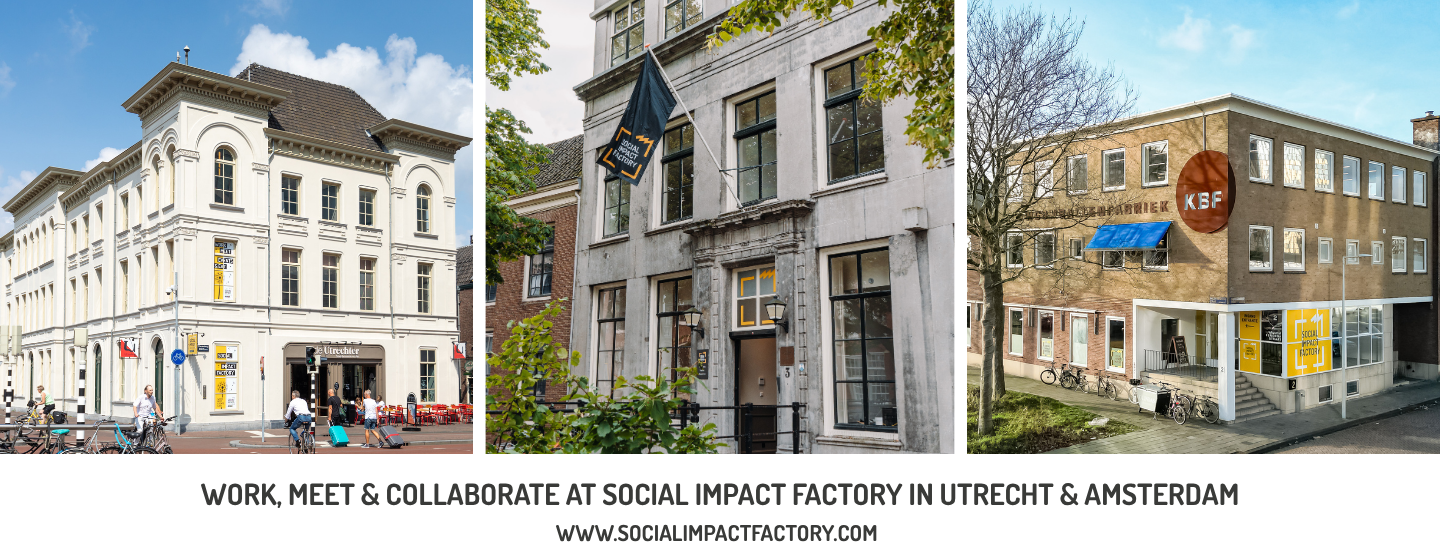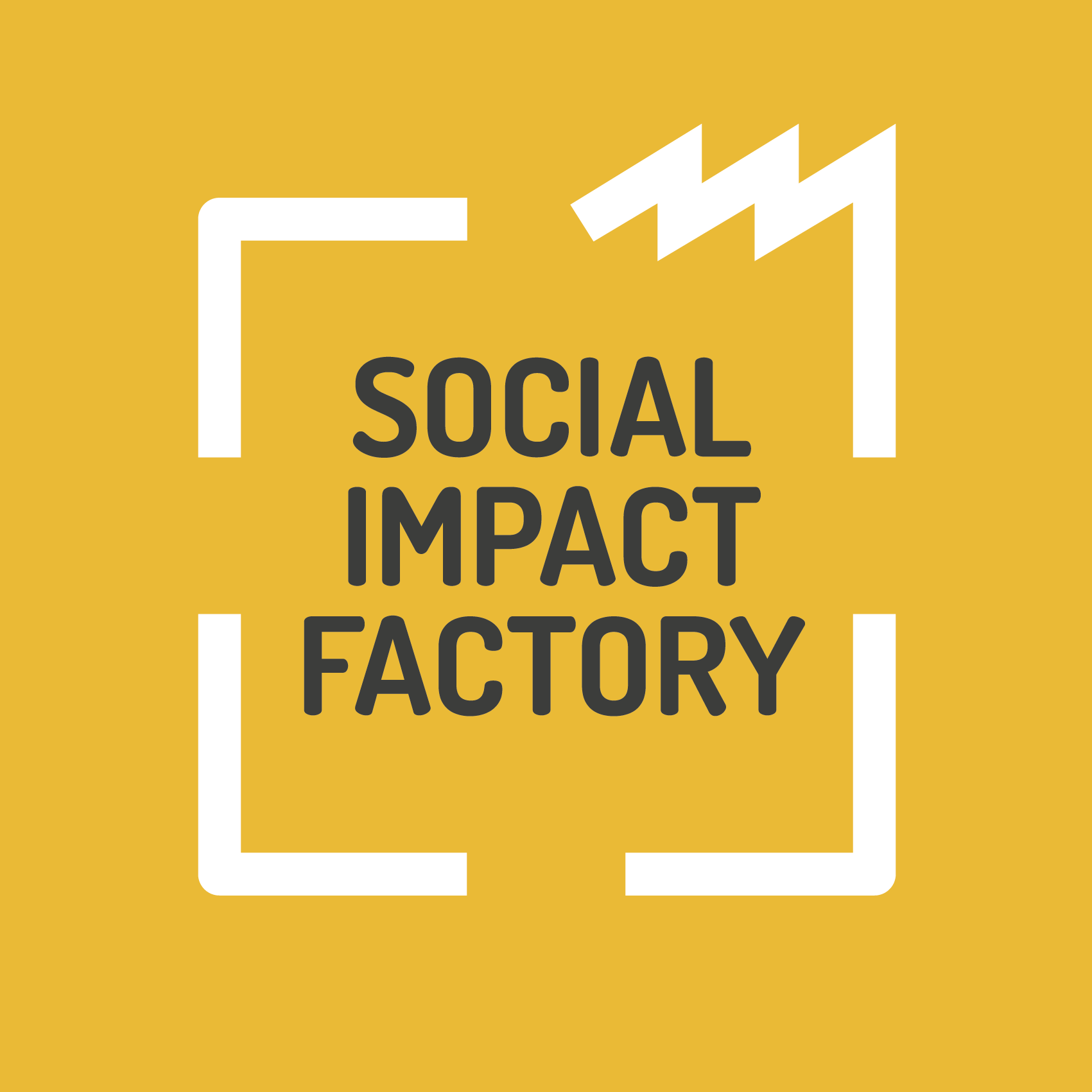

Social Impact Factory

1.6
Utrecht, Netherlands The
March 2022
Accommodation
Service with Significant Environmental Footprint
Netherlands The
Social Impact Factory is the hotspot for social impact. From our locations in Amsterdam and Utrecht we aim to make social impact the new normal in our society. As a B Corp and SDG House, we connect stakeholders and help establish new initiatives and collaborations. Our members and partners find innovative solutions to social issues in a wide variety of ways. They prioritize their mission; making money isn't the primary goal, but a means to work on the world of tomorrow. We encourage collaborations and connections between government, businesses, professionals, and citizens to accelerate the movement toward a sustainable society. At our centrally located locations, we offer workspaces, meeting spaces, and event spaces for meaningful encounters. With our projects, inspirational sessions, and events, we broaden your horizons and encourage creative connections. Through the design and décor of our building, the partnerships we form, and the events we organize, we bring social impact to life. We show you and let you experience what's already possible.
Overall B Impact Score
Governance 11.9
Governance evaluates a company's overall mission, engagement around its social/environmental impact, ethics, and transparency. This section also evaluates the ability of a company to protect their mission and formally consider stakeholders in decision making through their corporate structure (e.g. benefit corporation) or corporate governing documents.
What is this? A company with an Impact Business Model is intentionally designed to create a specific positive outcome for one of its stakeholders - such as workers, community, environment, or customers.
Workers 22.7
Workers evaluates a company’s contributions to its employees’ financial security, health & safety, wellness, career development, and engagement & satisfaction. In addition, this section recognizes business models designed to benefit workers, such as companies that are at least 40% owned by non-executive employees and those that have workforce development programs to support individuals with barriers to employment.
Community 21.3
Community evaluates a company’s engagement with and impact on the communities in which it operates, hires from, and sources from. Topics include diversity, equity & inclusion, economic impact, civic engagement, charitable giving, and supply chain management. In addition, this section recognizes business models that are designed to address specific community-oriented problems, such as poverty alleviation through fair trade sourcing or distribution via microenterprises, producer cooperative models, locally focused economic development, and formal charitable giving commitments.
Environment 11.1
Environment evaluates a company’s overall environmental management practices as well as its impact on the air, climate, water, land, and biodiversity. This includes the direct impact of a company’s operations and, when applicable its supply chain and distribution channels. This section also recognizes companies with environmentally innovative production processes and those that sell products or services that have a positive environmental impact. Some examples might include products and services that create renewable energy, reduce consumption or waste, conserve land or wildlife, provide less toxic alternatives to the market, or educate people about environmental problems.
Customers 13.0
Customers evaluates a company’s stewardship of its customers through the quality of its products and services, ethical marketing, data privacy and security, and feedback channels. In addition, this section recognizes products or services that are designed to address a particular social problem for or through its customers, such as health or educational products, arts & media products, serving underserved customers/clients, and services that improve the social impact of other businesses or organizations.
What is this? A company with an Impact Business Model is intentionally designed to create a specific positive outcome for one of its stakeholders - such as workers, community, environment, or customers.